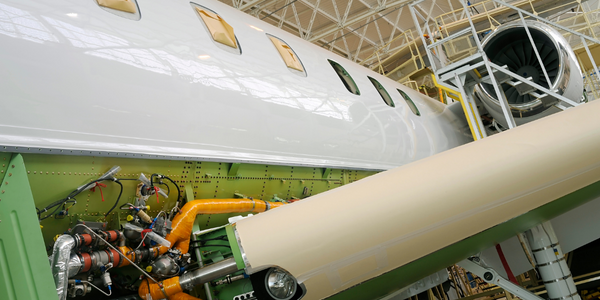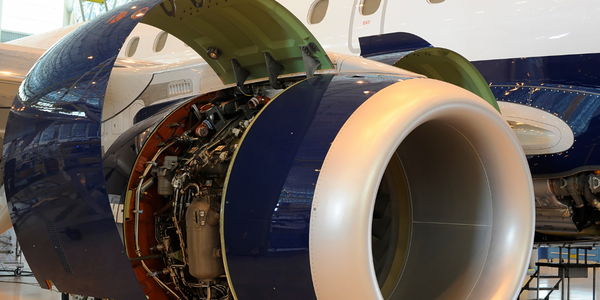公司规模
Large Corporate
地区
- America
国家
- Brazil
- United States
产品
- Azul Mobile App
- Apteligent Mobile App Intelligence
技术栈
- Mobile App Development
- Real-time Intelligence
实施规模
- Enterprise-wide Deployment
影响指标
- Customer Satisfaction
- Brand Awareness
技术
- 应用基础设施与中间件 - API 集成与管理
适用行业
- 航天
适用功能
- 销售与市场营销
- 商业运营
服务
- 软件设计与工程服务
关于客户
Azul Airlines is a Brazilian-American startup launched in 2008 by David Neeleman. The company's mission is to make it easier for people to travel, disrupting the classic airline model. Azul offers frequent flights to over 100 destinations in Brazil, French Guyana, and the United States. Despite being less than a decade old, Azul's fleet already numbers nearly 140 aircraft. The company recently launched a wildly popular “all-you-can-fly” air pass for American travelers. United Airlines, one of the oldest and most well-established airlines in the world, became major investors in Azul in 2015. Azul is committed to enhancing the customer experience on the ground, and to this end, they have developed a mobile app.
挑战
Azul Airlines, a startup launched in 2008, has been disrupting the classic airline model by offering frequent flights to over 100 destinations in Brazil, French Guyana, and the United States. As the company grew, it realized the need to bolster the customer experience on the ground. To complement the on-the-go lifestyle, Azul needed to provide a way for their customers to conveniently book, manage, and access reservations – preferably, one that didn’t require them to be chained to a computer, waiting on hold for a customer service agent, or standing in line to check-in for their flight. Building and managing a successful mobile app presented great challenges. With scores of daily flights, Azul is dealing with a host of passengers from different countries, time zones, language groups, and so on. They needed to build an app that could cater to a diverse user pool and scale easily. Crucially, the app also had to provide customers with a convenient way to organize travel plans and seamlessly go from point A to point B. This hinged on the app’s stability and simplicity.
解决方案
To fully understand the mobile app user experience and proactively identify app failure issues, the team at Azul knew that they needed real-time intelligence. After reviewing the market, the Mobile Customer Success Team found that Apteligent met their customer-focused criteria. In no time, the Azul travel companion app was up and running with Apteligent’s mobile app intelligence. Apteligent has helped Azul support its skyrocketing success. Its mobile presence is taking off too, and month over month, Azul has experienced app download success. Now, more than half of their customers are actively using their mobile app. Azul relies on Apteligent’s mobile app intelligence for Userflows, User Views, Crash Reporting, and Service Monitoring.
运营影响

Case Study missing?
Start adding your own!
Register with your work email and create a new case study profile for your business.
相关案例.

Case Study
Airbus Soars with Wearable Technology
Building an Airbus aircraft involves complex manufacturing processes consisting of thousands of moving parts. Speed and accuracy are critical to business and competitive advantage. Improvements in both would have high impact on Airbus’ bottom line. Airbus wanted to help operators reduce the complexity of assembling cabin seats and decrease the time required to complete this task.

Case Study
Aircraft Predictive Maintenance and Workflow Optimization
First, aircraft manufacturer have trouble monitoring the health of aircraft systems with health prognostics and deliver predictive maintenance insights. Second, aircraft manufacturer wants a solution that can provide an in-context advisory and align job assignments to match technician experience and expertise.

Case Study
Aerospace & Defense Case Study Airbus
For the development of its new wide-body aircraft, Airbus needed to ensure quality and consistency across all internal and external stakeholders. Airbus had many challenges including a very aggressive development schedule and the need to ramp up production quickly to satisfy their delivery commitments. The lack of communication extended design time and introduced errors that drove up costs.

Case Study
Accelerate Production for Spirit AeroSystems
The manufacture and assembly of massive fuselage assemblies and other large structures generates a river of data. In fact, the bill of materials for a single fuselage alone can be millions of rows of data. In-house production processes and testing, as well as other manufacturers and customers created data flows that overwhelmed previous processes and information systems. Spirit’s customer base had grown substantially since their 2005 divestiture from Boeing, resulting in a $41 billion backlog of orders to fill. To address this backlog, meet increased customer demands and minimize additional capital investment, the company needed a way to improve throughput in the existing operational footprint. Spirit had a requirement from customers to increase fuselage production by 30%. To accomplish this goal, Spirit needed real-time information on its value chain and workflow. However, the two terabytes of data being pulled from their SAP ECC was unmanageable and overloaded their business warehouse. It had become time-consuming and difficult to pull aggregate data, disaggregate it for the needed information and then reassemble to create a report. During the 6-8 hours it took to build a report, another work shift (they run three per day) would have already taken place, thus the report content was out-of-date before it was ever delivered. As a result, supervisors often had to rely on manual efforts to provide charts, reports and analysis.

Case Study
Developing Smart Tools for the Airbus Factory
Manufacturing and assembly of aircraft, which involves tens of thousands of steps that must be followed by the operators, and a single mistake in the process could cost hundreds of thousands of dollars to fix, makes the room for error very small.








